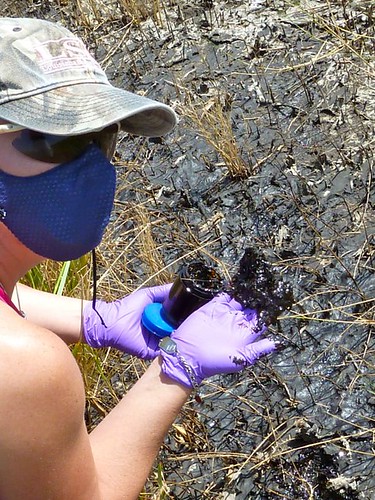A northern Gulf of Mexico (GoM) cetacean unusual mortality event (UME) involving primarily bottlenose dolphins (Tursiops truncatus) in Louisiana, Mississippi, and Alabama began in February 2010 and continued into 2014. Overlapping in time and space with this UME was the Deepwater Horizon (DWH) oil spill, which was proposed as a contributing cause of adrenal disease, lung disease, and poor health in live dolphins examined during 2011 in Barataria Bay, Louisiana. To assess potential contributing factors and causes of deaths for stranded UME dolphins from June 2010 through December 2012, lung and adrenal gland tissues were histologically evaluated from 46 fresh dead non-perinatal carcasses that stranded in Louisiana (including 22 from Barataria Bay), Mississippi, and Alabama. UME dolphins were tested for evidence of biotoxicosis, morbillivirus infection, and brucellosis. Results were compared to up to 106 fresh dead stranded dolphins from outside the UME area or prior to the DWH spill. UME dolphins were more likely to have primary bacterial pneumonia (22% compared to 2% in non-UME dolphins, P = .003) and thin adrenal cortices (33% compared to 7% in non-UME dolphins, P = .003). In 70% of UME dolphins with primary bacterial pneumonia, the condition either caused or contributed significantly to death. Brucellosis and morbillivirus infections were detected in 7% and 11% of UME dolphins, respectively, and biotoxin levels were low or below the detection limit, indicating that these were not primary causes of the current UME. The rare, life-threatening, and chronic adrenal gland and lung diseases identified in stranded UME dolphins are consistent with exposure to petroleum compounds as seen in other mammals. Exposure of dolphins to elevated petroleum compounds present in coastal GoM waters during and after the DWH oil spill is proposed as a cause of adrenal and lung disease and as a contributor to increased dolphin deaths.


